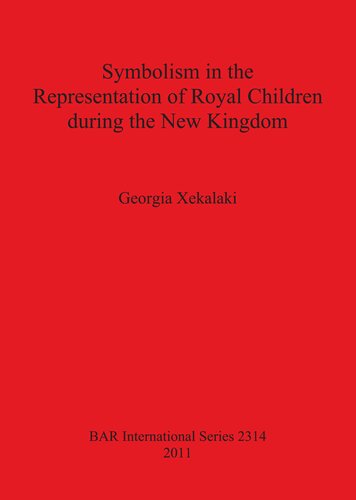

Most ebook files are in PDF format, so you can easily read them using various software such as Foxit Reader or directly on the Google Chrome browser.
Some ebook files are released by publishers in other formats such as .awz, .mobi, .epub, .fb2, etc. You may need to install specific software to read these formats on mobile/PC, such as Calibre.
Please read the tutorial at this link: https://ebookbell.com/faq
We offer FREE conversion to the popular formats you request; however, this may take some time. Therefore, right after payment, please email us, and we will try to provide the service as quickly as possible.
For some exceptional file formats or broken links (if any), please refrain from opening any disputes. Instead, email us first, and we will try to assist within a maximum of 6 hours.
EbookBell Team

4.0
36 reviewsThe subject of this work is the way that symbolism operates in official representations of the pharaohs' sons and daughters, during the historical period widely known as the New Kingdom (1550-1069 BC). The use of symbols in different expressions of Egyptian culture has been widely mentioned, and has been discussed from many different angles. Scholars have also analysed the identity and function of various royal children through historical and genealogical works. However, there has been little attempt to associate general ideas about visual and verbal symbolism with a socially homogeneous group such as the royal children. The author therefore aims to explore and explain what lies beneath the choice, the variation and the evolution of symbols used in the royal children's iconography and imagery. The area of Egyptian culture that was most affected by this symbolism is essentially the royal ideology. In the course of the five chapters of this work the author explains not only the role of royal children in analogies between divine and royal families, but also how the royal children became an official link between the king and leading non-royals.